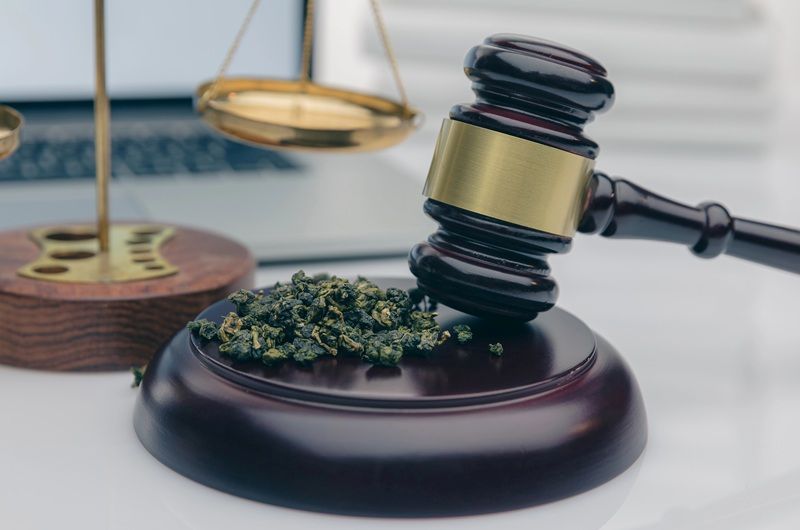Facing accusations of stealing can turn life upside down, especially if there’s already a record of past offenses. In Fairfax County, previous convictions can lead to harsher penalties, making it even harder to move forward. Understanding how these prior offenses impact new charges is key to preparing a strong defense and exploring possible alternatives.
A history of theft-related offenses can significantly change the outcome of a case. In this article, learn about Virginia’s theft laws, the penalties for repeat offenders, and how prior convictions affect sentencing. See what legal options exist for reducing charges and protecting your future.
What Are The Different Theft Classifications In Virginia?
Virginia law defines theft as larceny. It involves the unauthorized taking of someone else’s property with the intent to deprive them of it permanently. The Commonwealth categorizes this crime based on the value and nature of the stolen property.
Petit Larceny
Petit larceny occurs when someone unlawfully takes property worth less than $1,000. The Virginia Code classifies this offense as a Class 1 misdemeanor, carrying significant legal consequences. Unlike grand larceny, which involves higher-value thefts, this remains a lesser offense but brings serious legal and personal challenges.
A petit larceny conviction can result in up to 12 months in jail and a fine of up to $2,500. Courts may also require probation, community service, or restitution to the victim. Those with prior theft convictions face even harsher penalties, as repeat offenses often lead to felony charges.
A conviction leaves a permanent criminal record, making it harder to find jobs, secure housing, or maintain professional licenses. Due to these lasting effects, anyone charged with petit larceny should seek legal advice to build a strong defense or pursue alternatives to conviction.
Grand Larceny
Grand larceny occurs when someone unlawfully takes property worth $1,000 or more. This offense also applies if the stolen item is a firearm, regardless of its value. Due to its felony classification, it carries far more severe penalties.
A conviction for grand larceny can result in one to 20 years in prison. However, judges and juries can reduce the charge to a misdemeanor, which lowers the penalty to up to 12 months in jail and a fine of up to $2,500. Courts may also impose alternative sentencing, such as probation or restitution, depending on the circumstances.
Beyond prison time and fines, a grand larceny conviction creates a permanent felony record, which can limit job opportunities, restrict housing options, and affect gun ownership rights. Due to these serious consequences, anyone facing grand larceny charges should seek legal representation to explore possible defense strategies.
Repeat offenses make theft charges much more serious, especially in Virginia, where prior convictions lead to harsher penalties. Someone with a history of larceny faces more significant consequences. Understanding how past offenses affect current charges is critical for anyone facing multiple theft allegations.
How Do Past Convictions Make Penalties Worse?
A history of theft-related offenses leads to harsher consequences than a first-time charge. Courts see repeat offenses as proof that prior punishments failed, making leniency less likely. With each new conviction, defendants face stricter penalties, fewer legal options, and long-term setbacks.
Increased Scrutiny From Prosecutors
Prosecutors aggressively pursue stricter penalties for repeat offenders. They argue that multiple convictions show a pattern of criminal behavior and push for longer jail sentences or more stringent conditions. Plea bargains become more challenging to secure, forcing defendants to fight harsher charges with fewer opportunities for negotiation.
Harsher Sentencing Recommendations
Judges impose stricter penalties when they see a pattern of repeated theft offenses. They hand down higher fines, longer probation periods, or extended jail time, even when they have discretion. Defendants with multiple convictions struggle to convince the court that they deserve a second chance.
Limited Alternatives To Jail Time
First-time offenders often qualify for diversion programs or probation, but courts rarely grant repeat offenders those options. Judges see multiple convictions as proof that past leniency failed, making jail time a more likely outcome. Instead of rehabilitation, defendants with a record face stricter penalties with fewer alternatives.
Long-Term Consequences Beyond The Courtroom
A criminal record with multiple theft convictions creates major obstacles in daily life. Employers and landlords conduct background checks, making finding work or secure housing more difficult. Each new conviction limits opportunities and makes it even more challenging to move forward.
Each prior conviction makes it harder to avoid severe penalties and long-term setbacks. Prosecutors push for harsher consequences, judges impose stricter sentences, and courts remove alternative sentencing options. The impact doesn’t stop after serving time multiple convictions create lasting barriers to everyday life.
What Should You Do If You’re Facing Another Larceny Charge?
Multiple theft charges require a different approach than handling a first-time offense. Courts impose harsher penalties on repeat offenders, and prosecutors fight harder to secure convictions. Making smart decisions from the start can change the outcome of your case. Here are some tips to consider:
- Stay Silent Until You Have Legal Representation: Law enforcement and prosecutors can use anything you say against you. Exercise your right to remain silent and consult a lawyer before answering questions.
- Know the Potential Penalties: A second or third offense can result in longer jail time, higher fines, and fewer plea deal opportunities. Understanding the risks can help you make informed choices about your defense.
- Gather Strong Evidence: Witness statements, security footage, or proof of mistaken identity can strengthen your case. The more evidence you present, the better your chances of fighting the charges.
- Negotiate a Plea Deal When Possible: Prosecutors push for harsher sentences, but reducing a felony to a misdemeanor or securing probation may still be an option. A strong defense increases your chances of negotiating a better deal.
- Follow All Court Orders and Deadlines. Missing hearings or violating probation can lead to immediate consequences. Taking the legal process seriously and meeting all requirements can show responsibility.
A repeat theft charge brings serious risks, but smart choices can improve your chances of a better outcome. Knowing your rights, building a solid defense, and quick action can make a difference. The sooner you take control of your situation, the more options you have to protect your future.
What Are Common Questions About Repeat Theft Charges?
Facing theft charges, especially with prior convictions, raises many legal concerns. Courts hand down stricter penalties for repeat offenses, making understanding the potential consequences and available options vital. Below are some common questions about how prior convictions affect theft cases and what steps help improve the outcome.
Does A Prior Misdemeanor Theft Charge Affect Future Cases?
Yes, prior misdemeanor theft convictions lead to harsher penalties for future offenses. A second petit larceny conviction carries a mandatory minimum jail sentence, even when the stolen property has a low value. With each new conviction, prosecutors push for harsher penalties, and judges may show less willingness to lower sentences.
How Can I Reduce The Impact Of A Repeat Theft Charge?
Building a strong defense, presenting solid evidence, and negotiating plea deals help minimize the consequences of a repeat theft charge. Courts may allow alternatives like probation or rehabilitation, but repeat offenses make these options harder to obtain. Taking quick action and working with a lawyer strengthens the chances of a favorable outcome.
Are There Alternatives To Jail For Repeat Theft Offenders?
Some defendants can get probation or rehabilitation, but past convictions complicate it. Judges and prosecutors prefer lighter sentences for first-time offenders, making repeat offenses harder to fight. A well-prepared defense increases the chances of reducing penalties or securing an alternative sentence.
Repeat theft charges bring serious consequences, making it critical to understand legal options. Prosecutors push for harsher sentences, and courts rarely offer leniency without a strong defense. Taking the proper legal steps improves the chances of protecting your future.
Why Choose Fairfax County Criminal Attorneys For Your Defense?
Facing theft charges, especially with prior convictions, can feel like an uphill battle. Fairfax County Criminal Attorneys is here to stand by your side and fight for a favorable outcome. Whether you’re dealing with a misdemeanor or a felony, our team knows how to build a strong defense for your case.
Every theft case is different, and we take the time to understand your situation. Prosecutors push for harsh penalties against repeat offenders, but we work to protect your rights and explore every legal option available. From negotiating plea deals to fighting for case dismissals, we look for a suitable path forward.
If you’re facing theft charges in Virginia, don’t go through it alone. The sooner you have the right legal team, the more options you have. Fairfax County Criminal Attorneys is ready to help reach out today, and let’s start building your defense.
Prior convictions make theft charges more serious, leading to harsher penalties and fewer legal options. Virginia law strictly treats repeat offenses, making securing reduced charges or lenient sentencing harder. Understanding how past convictions impact a case is key to making informed legal decisions.
Plea bargaining, rehabilitation programs, and strong defense strategies can help reduce penalties or avoid jail time. A theft conviction can create lasting challenges in employment and housing. Fairfax County Criminal Attorneys works to protect clients from severe penalties and find a path forward.






